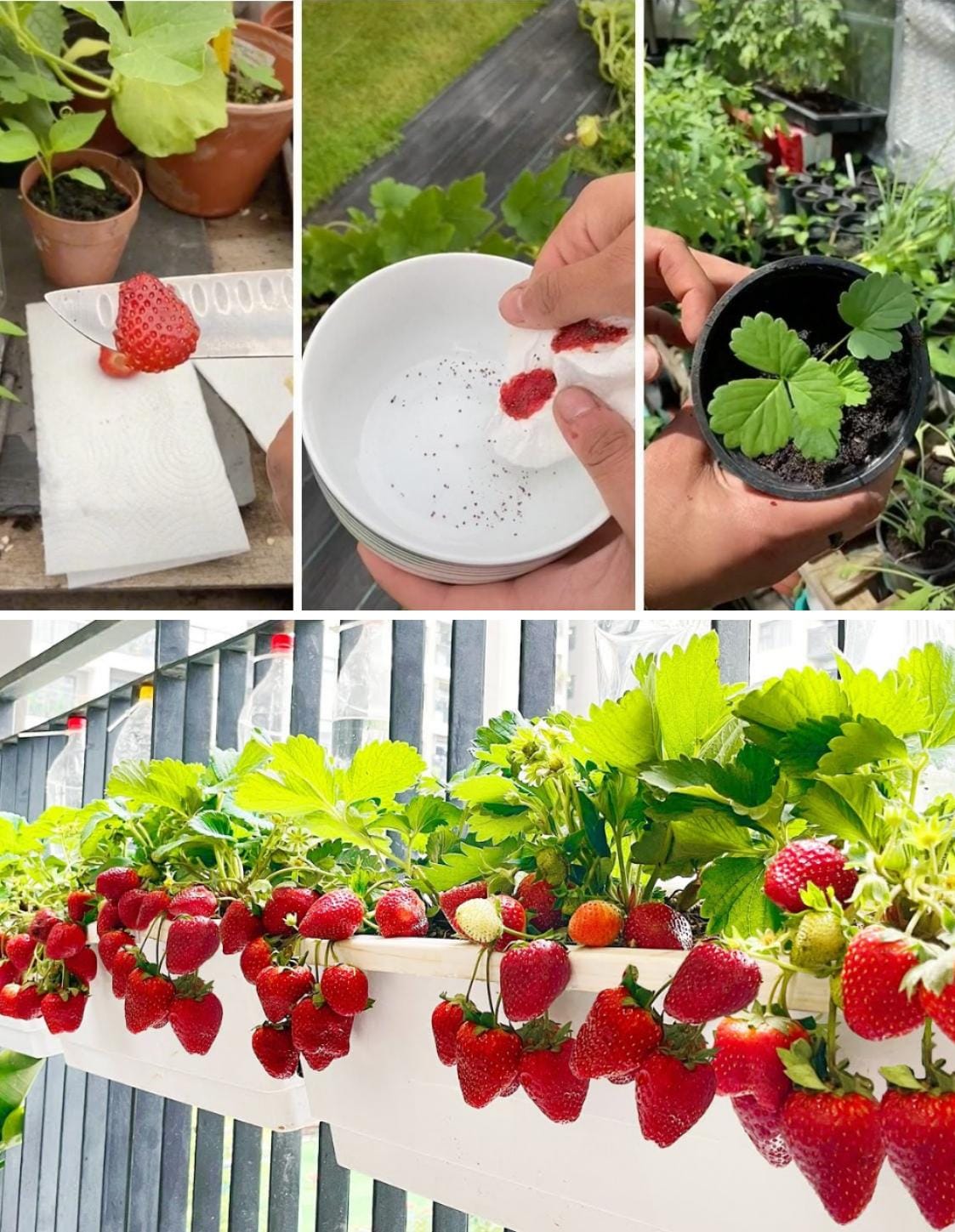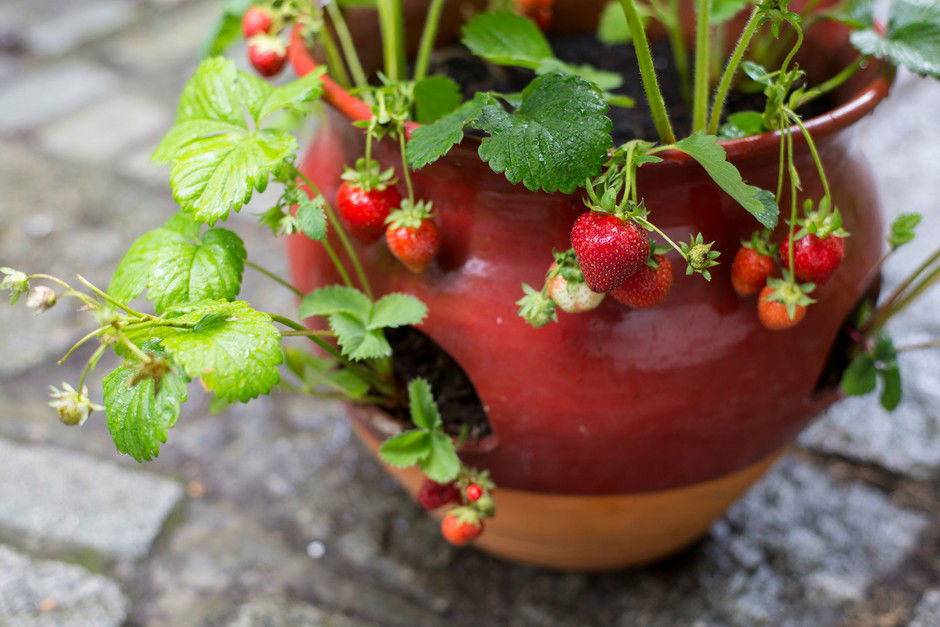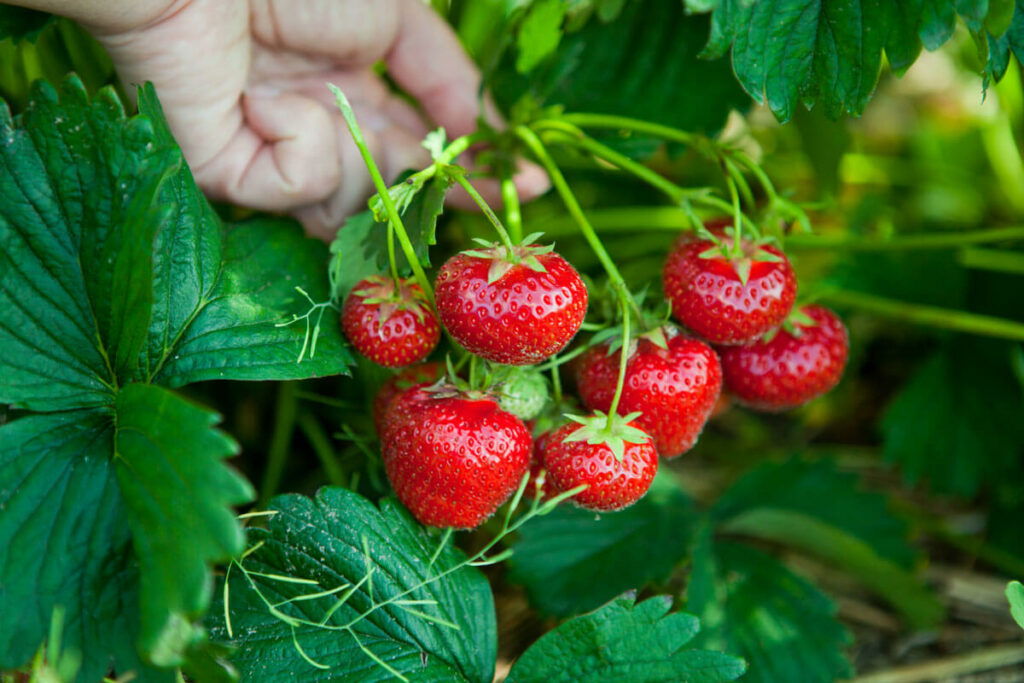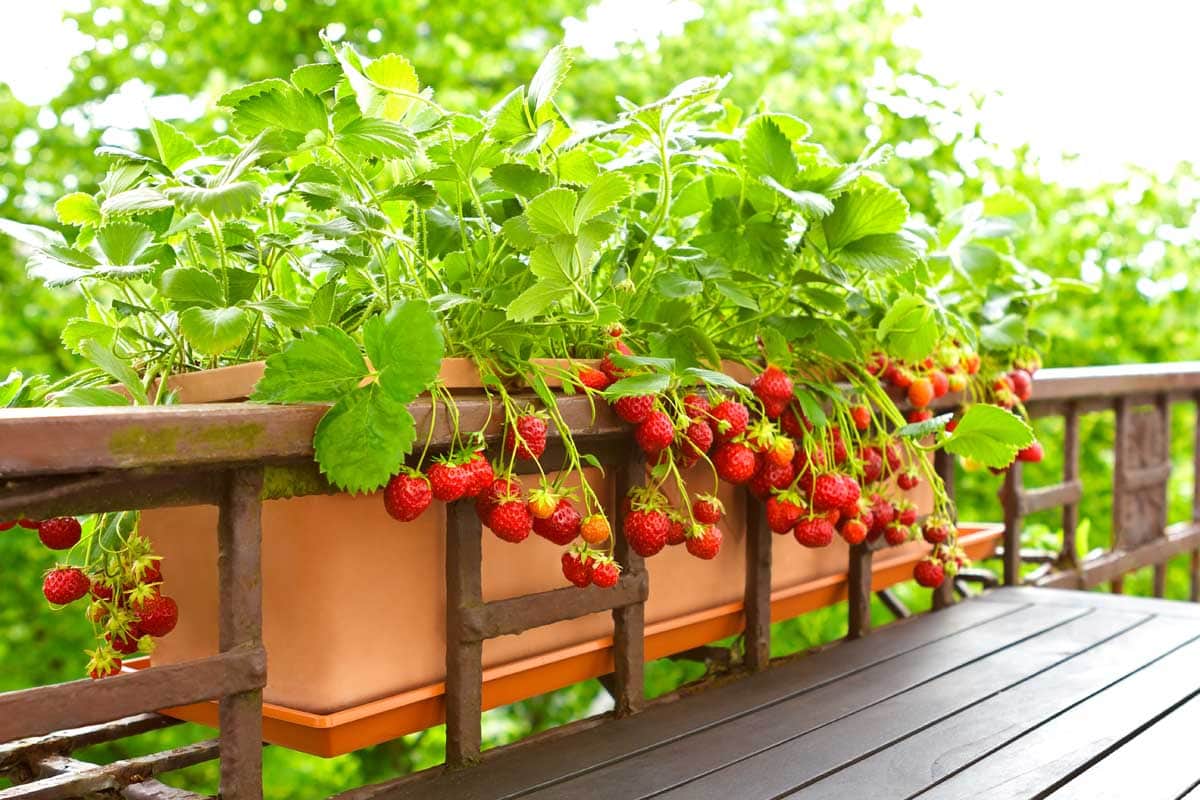
Growing your own strawberries from store-bought fruit is an enjoyable and cost-effective way to enjoy fresh berries at home. With some patience and care, you can turn supermarket strawberries into a flourishing home garden. Here’s how to do it step by step.
Step 1: Selecting Your Strawberries
Choose ripe, organic strawberries from the supermarket, as non-organic fruits may have been treated to hinder sprouting. Pick plump berries with a bright red color and seeds (achenes) that are clearly visible.
Step 2: Extracting the Seeds
Gently scrape off the seeds from the surface of the berries with a knife or tweezers. Place the seeds on a paper towel to dry for a few days in a warm, well-ventilated area, away from direct sunlight.
Step 3: Preparing the Seeds

Once dry, prepare the seeds for planting. Some growers recommend freezing the seeds for a few weeks to stratify them, which mimics the natural cold period that seeds would undergo in the wild.
Step 4: Soil and Container
Fill a container with a mix of potting soil and compost. Ensure the container has good drainage, as strawberries do not like soggy soil. If possible, choose a container that can accommodate multiple plants spaced about 4-6 inches apart.
Step 5: Planting the Seeds
Sow the strawberry seeds on the surface of the soil and lightly press them in. Do not bury them deeply, as they need light to germinate. Water the soil gently to avoid dislodging the seeds.
Step 6: Germination

Place the container in a warm area with plenty of indirect sunlight. Keep the soil consistently moist but not waterlogged. Germination can take several weeks, so be patient.
Step 7: Thinning Seedlings
Once the seedlings have a couple of true leaves, thin them out, leaving the strongest ones. This gives the remaining plants enough space to grow.
Step 8: Sunlight and Watering
As the plants grow, move them to a sunny spot where they can get at least 6 hours of sunlight daily. Water the plants regularly, ensuring the soil remains moist but not waterlogged.
Step 9: Fertilizing
When the plants are established, fertilize them with a balanced, all-purpose fertilizer to encourage growth. Follow the instructions on the fertilizer package for proper application.
Step 10: Runner Management

Strawberry plants will produce runners. You can allow a few runners to develop and root to propagate new plants, but avoid letting them take over the pot.
Step 11: Flowering and Fruiting
Once flowering begins, you can hand-pollinate the flowers by gently transferring pollen from one flower to another with a small paintbrush or cotton swab.
Step 12: Harvesting
Harvest your strawberries when they are fully red and give off a sweet aroma. Enjoy them fresh, in desserts, or preserve them for later use.
Tips:
- Be mindful of pests such as slugs and birds that may be attracted to your strawberries.
- Consider using a net to protect the fruit as it ripens.
By following these steps, you can turn supermarket strawberries into a bountiful home harvest. Not only will you enjoy the fruits of your labor, but you’ll also gain the satisfaction of growing them yourself.




















